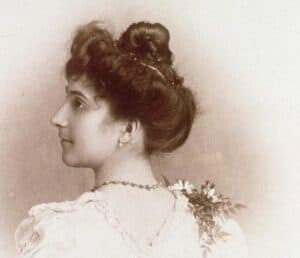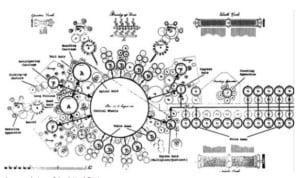While most exclusively use Google today, some will remember a time when a whole plethora of different internet search engines existed and competed with one another for the top spot. Before Google, before Bing, before Yahoo, even before Ask Jeeves, there was Archie. But what exactly is Archie? How was it used, and what ended up happening to it? This guide will walk you through the complete history, origin, and current status of the Archie search engine.

What Is Archie: Explained
Alan Emtage was born in Barbados on November 27, 1964. After becoming the owner of a Sinclair ZX81 during his high school years, Emtage graduated at the top of his class and won the Barbados Scholarship — thus allowing him and his love for computers to flourish in North America at McGill University in Montreal, Canada. Emtage earned a Bachelor’s degree in computer science and then went on to pursue a Master’s degree in 1991.
Quick Facts
- Creator (person)
- Alan Emtage
- Original Price
- N/A
- Operating System
- FTP (file transfer protocol), Telnet
- Developed By (company)
- McGill University
While working as a systems administrator at McGill University’s School of Computer Science, Emtage conceived and implemented what would be known as the original version of the Archie search engine — the world’s very first Internet search engine and the first step toward today’s search giants like Google and Yahoo. The idea came to Emtage after spending countless hours trying to locate information for the students and staff of the faculty. This need became the basis of Emtage’s world-changing invention: rather than continuing to do it himself, he set out to write software that would allow students and staff to come in and search the index themselves.
Emtage developed a set of programs designed to scour through the repositories of software on anonymous public FTP (File Transfer Protocol) sites via the Telnet protocol. The programs then established an index of all the available software, which then became a searchable database based on file name. One thing led to another and word got out that he had an index available and people started writing in and asking if we could search the index on their behalf.
Today, Archie is considered the original search engine. Many of the techniques that Emtage and his colleagues and fellow students established are now used by Google, Yahoo, and every other major Internet search engine. At its peak, Archie had 30 servers up and running and more than half of all internet traffic in Canada was running through them.
How to Use Archie
Archie is quite simple to use — something you may have been able to surmise based off of the ease of modern-day search engines like Yahoo or Google. Users would simply search for the names of files they were trying to locate, and the Archie software would search through a long list of public anonymous FTP sites using the Telnet protocol. Archie would then index the files for the user’s convenience. This saved people an enormous amount of time, though each file transferred between computers would still have to be downloaded in order to view its contents.
Archie’s Telnet protocol was a revolutionary way to allow users to find the titles of specific files much simpler, much faster, and much easier than ever before. However, because Archie could not index the content inside the files or comprehend natural language requests, users had to know the exact title of the file they were looking for in order to use Archie.
Archie Release History
After the success and popularity of Archie on McGill University’s campus, Alan and his colleagues went on to develop various other versions of Archie that allowed them to split up the service and make the FTP/Telnet search engine available to other universities outside of McGill. This release of Archie’s proprietary technology led to the creation of Archie variants such as the University of Utah’s Jughead and the University of Nevada-Reno’s Veronica.
Unlike Archie, though, neither of these variants are still operational in their original forms — A single Archie server is still being maintained and kept active for posterity at the University of Warsaw’s Interdisciplinary Centre for Mathematical and Computational Modelling in Poland. Although work stopped on Archie more than twenty years ago, this lone server is still accessible today.
Up Next…
Here are more intriguing articles on software which has played a key role in the history of computing and technology as a whole.
- The Complete History of Mac OS: It is the standard software for Apple products, with each release often named after a large feline. Find out about how it all began right here.
- Lisp Programming Language Guide: History, Origin, and More: How did the second oldest programming language still in use come to be? Read all about its beginnings in this article.
- IBM OS/400 Guide: History, Origin, and More: This operating system was first launched in 1988 and continues to be in use today. Find out all you need to know about it.
The image featured at the top of this post is ©Bajan64~commonswiki, CC BY-SA 4.0, via Wikimedia Commons.








